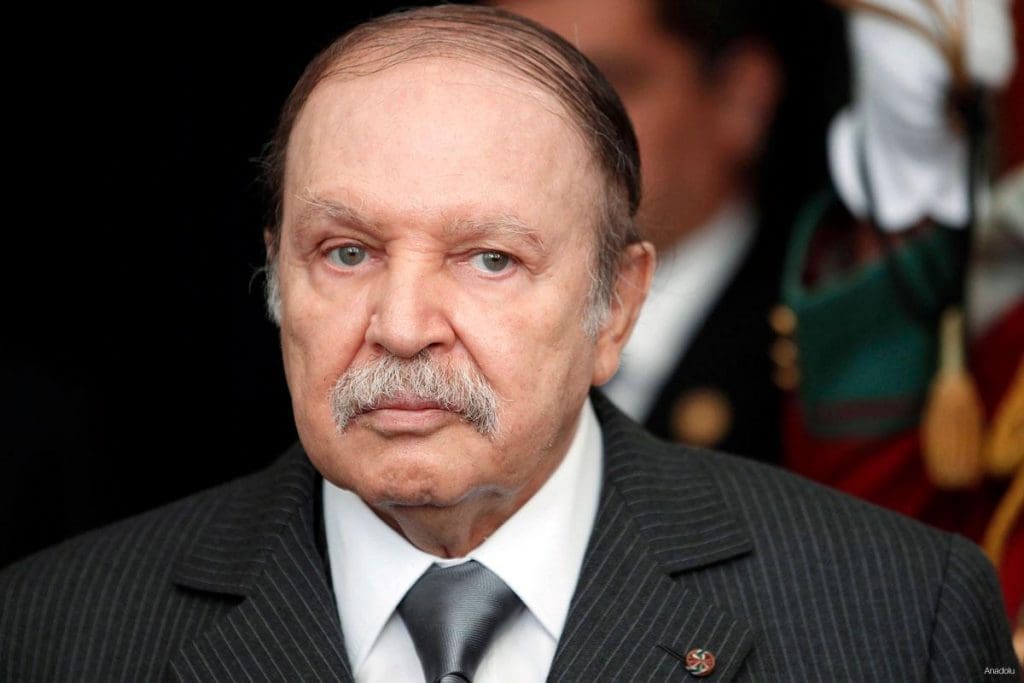Former President Abdelaziz Bouteflika who died in the capital Algiers on Friday at the age of 84 was a man with “many lives” all of which presented him as a towering figure in Algeria’s recent political history.
In a tribute to him shortly after his death was confirmed one local writer described him as “an Algerian colossus with many faces”.
The man called “Boutef” in short for Bouteflika by his compatriots was first elected president in 1999 before beng returned to the Algerian presidency three more times in 2004, 2009 and 2014.
Each time, he had polled over 80 percent of the vote to the chagrin of his political opponents many of whom had questioned the credibility of the elections.
Despite the brutal unpredictability of Algerian political life he will remain at the helm for twenty years before a popular protest swept him from power thanks to his ill-advised decision to go for a fifth term amidst worsening ill health.
Weeks pf street protests in 2019 known as the Hirak, forced the head of the army, who was one his most consistent allies to intervene.
Bouteflika now confined to a wheelchair was forced to resign in the spring of 2019.
Incapacitated by a stroke in 2013 that rendered him aphasic, Bouteflika will experience a gradual deterioration of his health which worsened after his forced resignation.
Born on March 2, 1937 in Oujda, a Moroccan town bordering Algeria, Abdelaziz Bouteflika grew up in a modest environment.
His mother was the manager of a Moorish public bath, a Hammam.
At 19, he dropped out of high school and joined the armed insurgency against the French colonial presence in his country, a move which would define him and help shape the history of Algeria in the second half of the 20th century.
When a student strike was called by the National Liberation Front (FLN), spearheading the struggle for Algerian independence, in May 1956, he joined the ranks of the National Liberation Army (ALN).
Very quickly, he was assigned to the secretariat of the general staff of the border army, part of which was based in Tunisia and the other in Morocco, the latter a familiar environment where he was born and raised.
He was then called to work within the general staff with Colonel Houari Boumediene, in Oujda, where he became a trusted protege and later a spiritual son.
After the dawn of independence in 1962, at just 25, he was appointed Minister of Sports and Tourism, before inheriting a year later the portfolio of Foreign Affairs, which he kept until 1979.
In 1965, he backed an insurrection led by his mentor, Houari Boumédiène, then Minister of Defense to overthrew President Ahmed Ben Bella.
Asserting himself as the dolphin of Boumédiène, who died in 1978, his political fortunes hit the reefs as he was excluded from the list of potential successors by the army.
This took place against the backdrop of allegations of embezzlement and he went into exile in Dubai and later Geneva.
However, it was the army that paved the way for his ascendancy to the political summit in Algeria in 1999.
Widely seen as their preferred candidate he swept the presidential election after the withdrawal of his opponents who denounced the exercise as marred by fraud.
Many Algerians will fondly look at his life as a veteran of the Algerian war of independence and perhaps forgive him for staying too long at the helm particularly when his health was failing.
HA/as/APA


